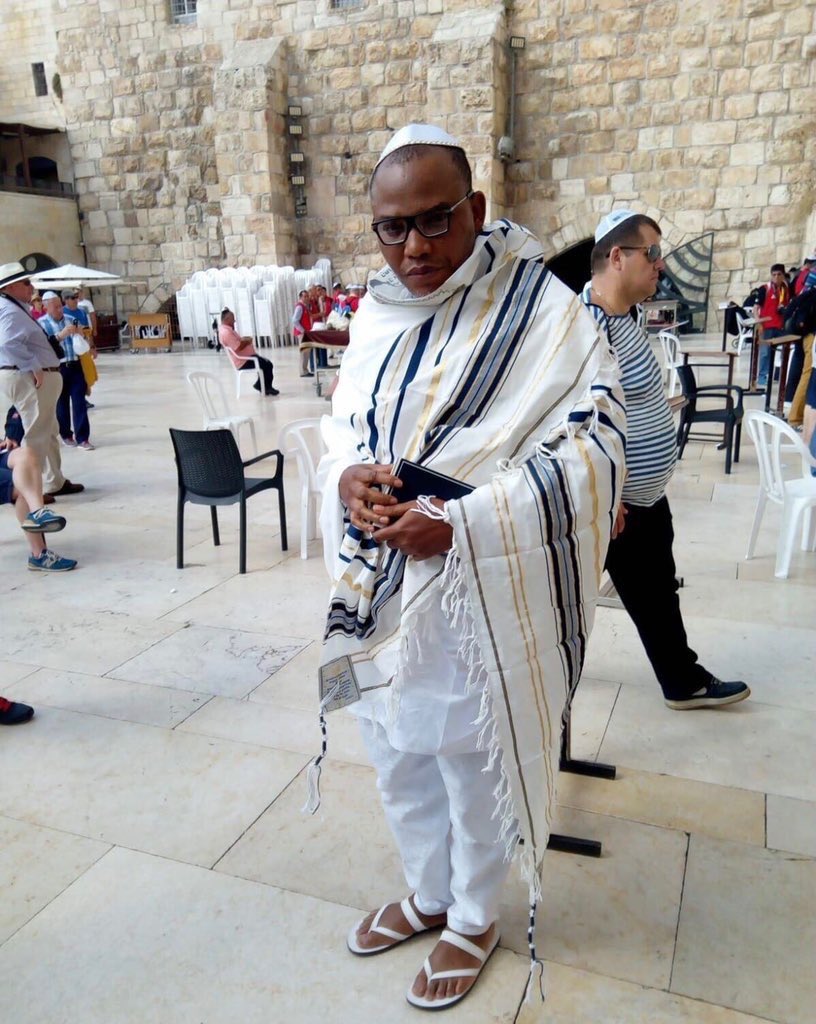The Ohanaeze Ndigbo Youth Council Worldwide has called on President Muhammadu Buhari to pardon leader of the Indigenous People of Biafra (IPOB), Nnamdi Kanu and other Biafra agitators presently standing trial for treason-related offences.
The group said the pardon was necessary in the interest of national unity and the spirit of reconciliation.
Recall that social media was abuzz yesterday following the discovery that Kanu, who had earlier been believed dead or missing, was in Israel.
In a statement in Abakaliki, Ebonyi State on Friday, the Deputy President General of the group, Comrade Obinna Achionye, said, “We received the news of sighting Nnamdi Kanu at Israel with joy, and as he is observing the Sabbath ordinances and Prayers.
“We Urge President Buhari to grant him Presidential pardon and squash all legal proceedings against him and other Biafra agitators in the spirit of National reconciliation and forgiveness, if Federal government can release 500 Boko Haram detainees in Kano and planning to give Amnesty to Boko Haram, this gesture should be extended to IPOB, and reversal of the tag that IPOB is a terrorist organisation is imminent and they should allow peace to reign.
Read Also: Atiku Plots Critical Meeting With South West Leaders Over Positions
“We beg the IPOB followers not to go to the street now in the spirit of jubilation in other not to create political tension in the South East and South/south and fall victims of security agents, Until OYC persuade Federal Government to reverse its decisions against IPOB.
“We Urge the South East Governors to close ranks and rebuild the palace of HRH Eze I. Kanu, which was destroyed during the Python dance, and ask the leader, Nnamdi Kanu to change strategy and embrace the hands of genuine Igbo brothers and leaders, We still ask Ipob to have rethink on its decision of Proscribing The parent body of Ohanaeze Ndigbo, and disruption of Ohanaeze events and gathering.
“OYC will lead any struggle to ensure self determination is not tagged terrorism, and ensure there is peaceful co existence between all stakeholders in Southeast.”




 Premier League
Premier League